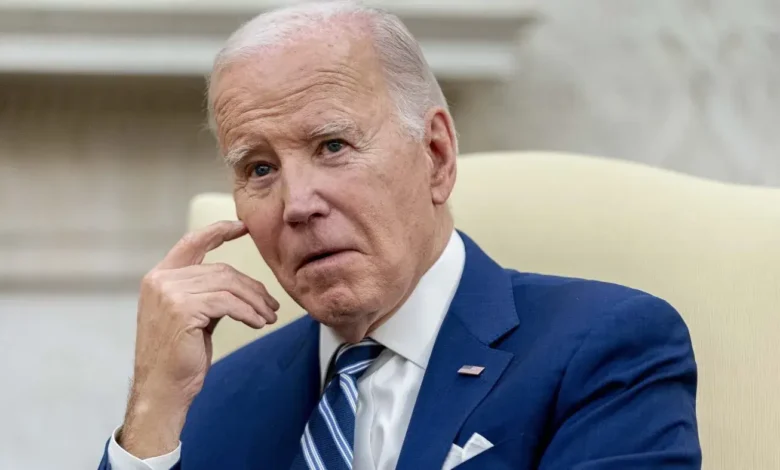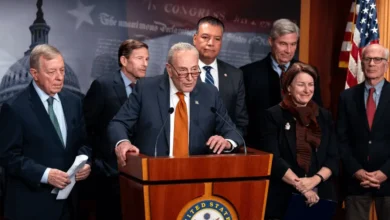Biden’s Historic Clemency Move: A Step Toward Justice Reform and Redemption

In a bold and unprecedented move, President Joe Biden has commuted the sentences of nearly 1,500 non-violent offenders and granted pardons to 39 individuals, marking what could be a defining moment in his presidency. This decision is the largest single-day act of clemency in U.S. history, setting a significant precedent for future administrations. The White House has called this act a reflection of the core American principle of second chances and rehabilitation.
A Landmark Decision in Biden’s Presidency
In an official statement released on Thursday, Biden framed this move as part of his broader commitment to justice reform. “America was built on the promise of possibility and second chances,” he said. “As president, I have the great privilege of extending mercy to people who have demonstrated remorse and rehabilitation, restoring opportunity for Americans to participate in daily life and contribute to their communities.” Biden also emphasized the need to address sentencing disparities, particularly those affecting non-violent offenders, many of whom were convicted for drug-related crimes during the nation’s harshest “war on drugs” era.
This mass commutation and pardon comes after several years of Biden’s administration focusing on criminal justice reform, especially for those incarcerated for non-violent crimes. Biden’s emphasis on rehabilitation rather than punishment represents a shift away from the harsh policies of previous decades, particularly those related to drug convictions. The President pointed out that many of the offenders would likely face shorter sentences if tried under current laws and policies.
The Non-Violent Offenders Receiving Clemency
The 1,500 individuals whose sentences were commuted are all non-violent offenders who had been placed under home confinement for at least one year during the COVID-19 pandemic under the CARES Act. The White House highlighted that these offenders had shown “successful rehabilitation” and a commitment to community safety. In many cases, these individuals had demonstrated strong potential for reintegration into society, having used their time under confinement to pursue educational programs, maintain employment, or give back to their communities.
The decision has been met with mixed reactions. Supporters see it as an important step toward justice reform, offering second chances to those who have shown genuine remorse and rehabilitative progress. Critics, however, argue that clemency should be reserved for only the most deserving individuals and worry that this will encourage future leniency toward those convicted of more serious crimes.
Pardons for 39 Individuals: A Glimpse into the Future
In addition to the commutation of sentences, Biden issued pardons to 39 individuals convicted of non-violent crimes. These pardons include a diverse range of individuals, from a decorated military veteran who volunteers at a local church to a nurse leading disaster response efforts, and an addiction counselor helping young people overcome substance abuse.
The idea behind these pardons is not just about correcting individual cases of injustice but also about setting a broader example of redemption and reintegration into society. By pardoning individuals who have turned their lives around, Biden is sending a message that rehabilitation and social contribution can be stronger than past mistakes.
Historic Reforms and Policy Shifts
Biden’s move goes beyond just granting mercy; it also highlights his administration’s commitment to criminal justice reform. The White House pointed out that Biden is the first U.S. president to issue “categorical pardons” for individuals convicted of marijuana use or possession. This decision builds upon the administration’s previous efforts to push for the decriminalization of marijuana at the federal level, a stance that has seen growing support across the country.
Additionally, Biden’s actions are seen as a recognition of the challenges faced by the LGBTQI+ community in the military. Biden’s pardons extend to former service members who were dishonorably discharged due to their sexual orientation, making this a pivotal moment in the ongoing fight for LGBTQI+ rights and acceptance in American society.
In terms of raw numbers, Biden has now issued more commutations during his first term than any of his recent predecessors, including Barack Obama. Obama’s record in 2017, with 330 commutations, was considered a high watermark at the time, but Biden’s actions have far surpassed that figure, signaling a more proactive approach to justice reform during his presidency.
What Lies Ahead: Could More Clemency Be Granted?
While the announcement on Thursday marks a historic day for clemency in the U.S., it’s not the end of Biden’s efforts to reshape the country’s criminal justice policies. The White House stated that Biden and his administration would “continue reviewing clemency petitions,” leaving the door open for more pardons and commutations in the months leading up to his exit from office in January 2025.
There is also ongoing speculation about whether Biden will take further steps in issuing preemptive pardons to individuals who may face future legal challenges, especially in light of the growing rift between Biden and former President Donald Trump. Sources close to Biden have indicated that discussions have already taken place regarding pardoning those who might be caught up in Trump’s legal battles, signaling that the clemency process could become an even more prominent part of Biden’s final days in office.
A Historic Act of Mercy and Justice
Biden’s actions demonstrate a significant shift in American criminal justice policy, moving toward a more compassionate approach that emphasizes rehabilitation and the removal of outdated punitive measures. By extending clemency to those who have demonstrated genuine remorse and a commitment to positive change, Biden is setting a new standard for future administrations. This historic act of mercy will likely be remembered as one of the defining moments of his presidency—a testament to the idea that second chances can indeed change lives and strengthen communities.
As Biden prepares to leave office in 2025, his legacy in the realm of criminal justice reform is already being shaped by these historic acts of clemency. Whether his reforms will outlast his presidency remains to be seen, but for many, this bold move represents a significant step toward a more just and compassionate America.



